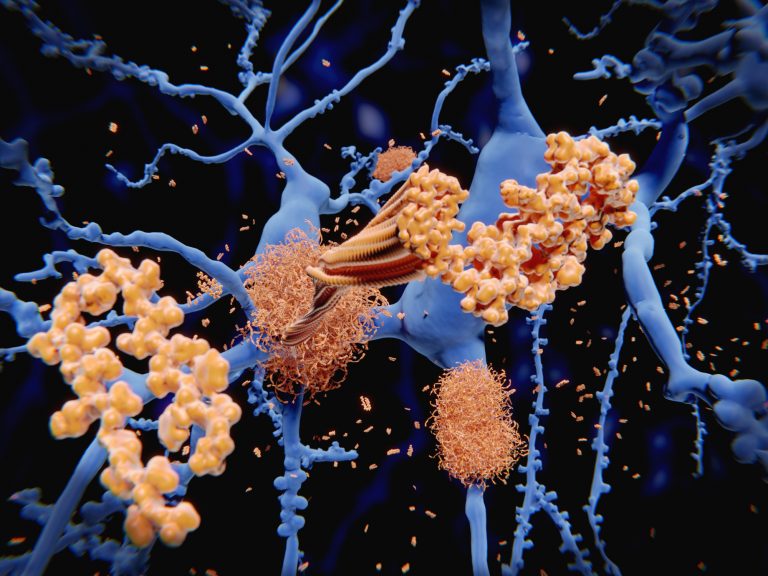
The protein encoded by the gene ABCC1 has the ability to break down amyloid plaques in the brain that are a characteristic symptom of Alzheimer’s disease, suggests research from the Translational Genomics Research Institute in Phoenix.
The researchers involved in the study believe that increasing expression of this gene could not only delay, but may even actively prevent the neurodegenerative disease from developing in the first place.
“Much work remains toward developing a drug that slows the development of, or prevents, Alzheimer’s disease, but our findings suggest that targeting ABCC1 offers a promising path that could eventually lead to effective therapeutics,” said Wayne Jepsen, a researcher at the Translational Genomics Research Institute (TGen), and the lead author of the study describing the work that is published in the journal Biology Open.
Alzheimer’s disease is one of the most common neurodegenerative dementias and is estimated to affect 44 million people around the world. In the U.S. alone, there are an estimated 5.5 million people with the condition the majority of whom are 65 years and older.
Attempts to develop effective drugs or therapies to prevent or treat Alzheimer’s have largely failed and the only current option for those diagnosed with this condition is moderately effective treatments to reduce symptom severity such as acetylcholinesterase inhibitors.
The Adenosine triphosphate binding cassette subfamily C member 1 (ABCC1) was previously shown to transport amyloid beta to the periphery of the blood brain barrier in a mouse model of Alzheimer’s. Other animal studies have also shown that activating expression of the ABBC1 protein can help reduce amyloid plaque build-up in the brain.
In this study, Jepsen and colleagues tested the impact of ABCC1 on human brain cell lines engineered to overexpress amyloid precursor protein.
They confirmed previous studies showing that ABCC1 transports amyloid beta – the substance that forms amyloid plaques in the brain – from the cell cytoplasm. But also showed that overexpression of the protein can actively reduce levels of amyloid beta.
ABCC1 seems to do this by increasing the number of amyloid precursor proteins that are cut by an enzyme known as an alpha-secretase. These amyloid molecules do not go on to form plaques in the same way that those cut with a beta-secretase do.
“Compounds that can dramatically increase ABCC1 transport activity, or that can increase ABCC1 expression, may prove to be viable drugs for the treatment or prevention of Alzheimer’s disease by not only increasing clearance of amyloid beta from the brain, but also by reducing the amount of amyloid beta that is produced,” said Matt Huentelman, Ph.D., TGen Professor of Neurogenomics, and the study’s senior author.
“Interestingly, due to the historical focus in cancer research on finding ABCC1 inhibiting drugs, we are betting that there are already drugs out there that are known to have an opposite ABCC1-activating effect, and our data suggest that such drugs should be examined for anti-Alzheimer’s disease activity,” he concluded.













